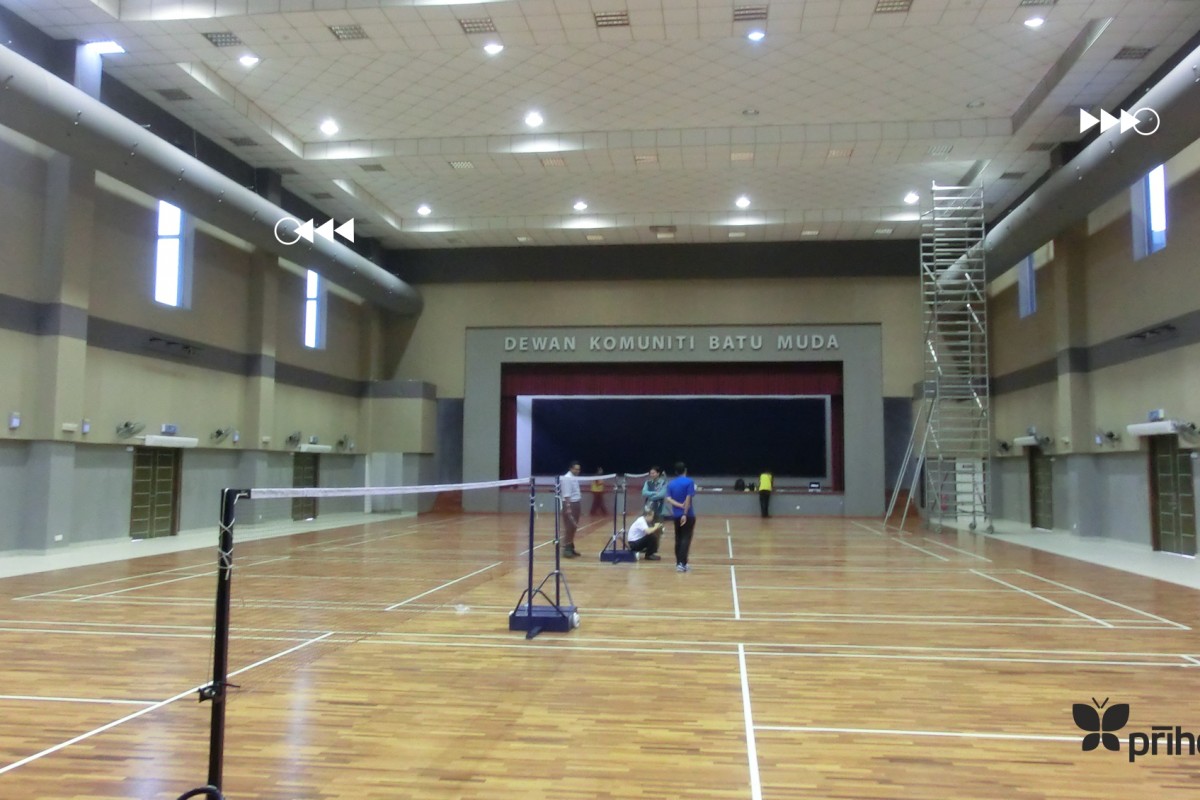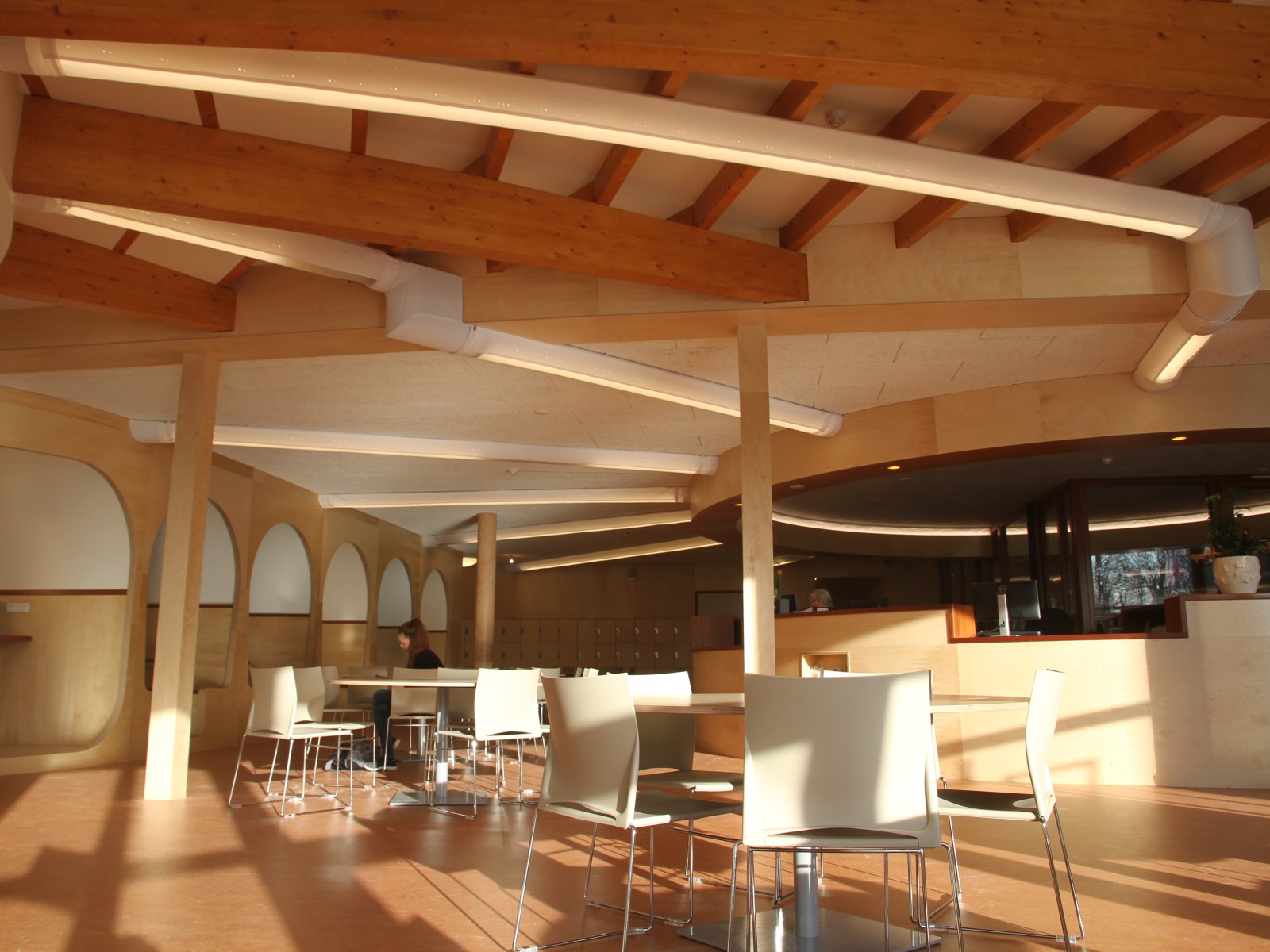
The Case For Sports Hall Ventilation
Sports hall ventilation often combines the worst circumstances in terms of trying to make a project work. Ducts are usually mounted at high level, often over 10m, and supply air temperatures are often quite a bit warmer than the room ambient leading to wide ∆t and quite buoyant air, which you need to travel long distances due to the mounting height. Added to these issues are the lack of air volume given the size of the room, typically one (1) air change or less and often velocity control requirements – especially if Badminton is played in the courts area.
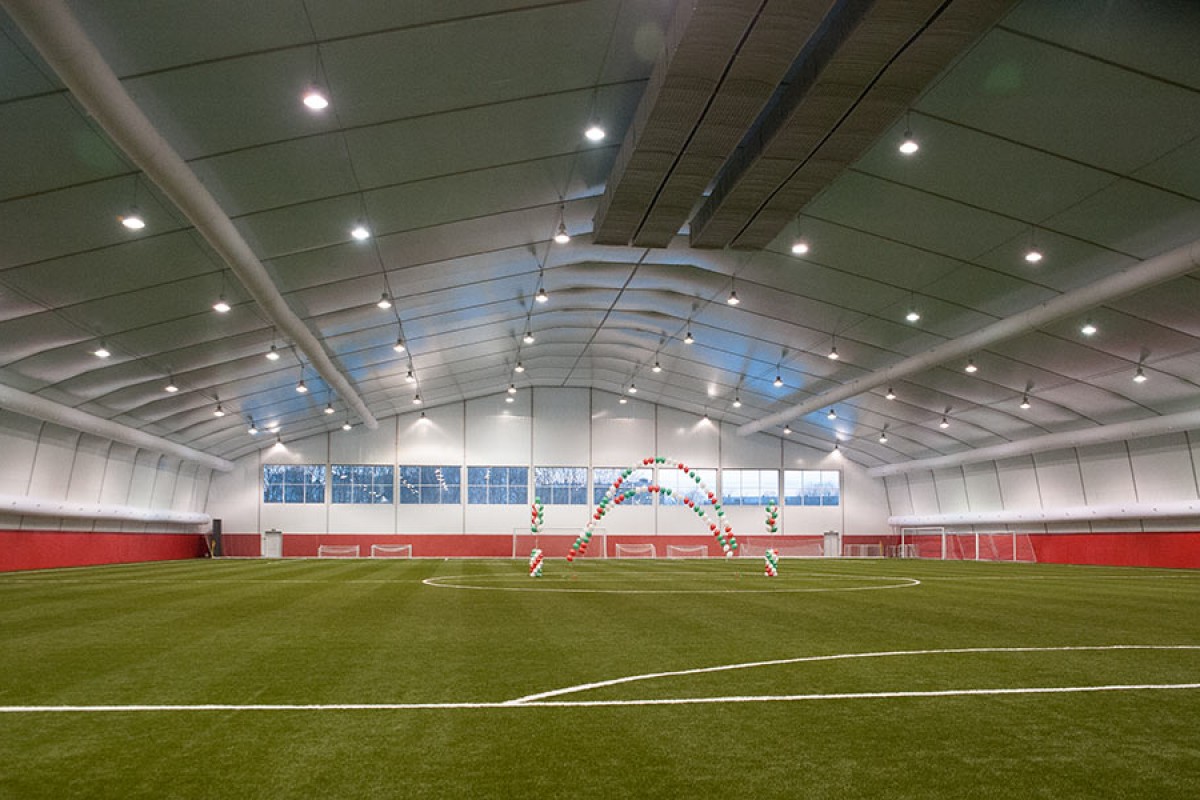
Why Fabric Ducting Not Traditional Ducting?
Fortunately at Prihoda we’ve done quite a lot of sports hall applications so we know what works and what doesn’t. Our Fabric Ducts are a lot lighter than traditional rigid ducts and much easier to install at high level and much safer for the installation team too, with it being lighter it also requires less secondary steelwork. Fabric Ducting doesn’t dent either, important for sports halls where footballs and the like often find themselves up amongst the ducting!
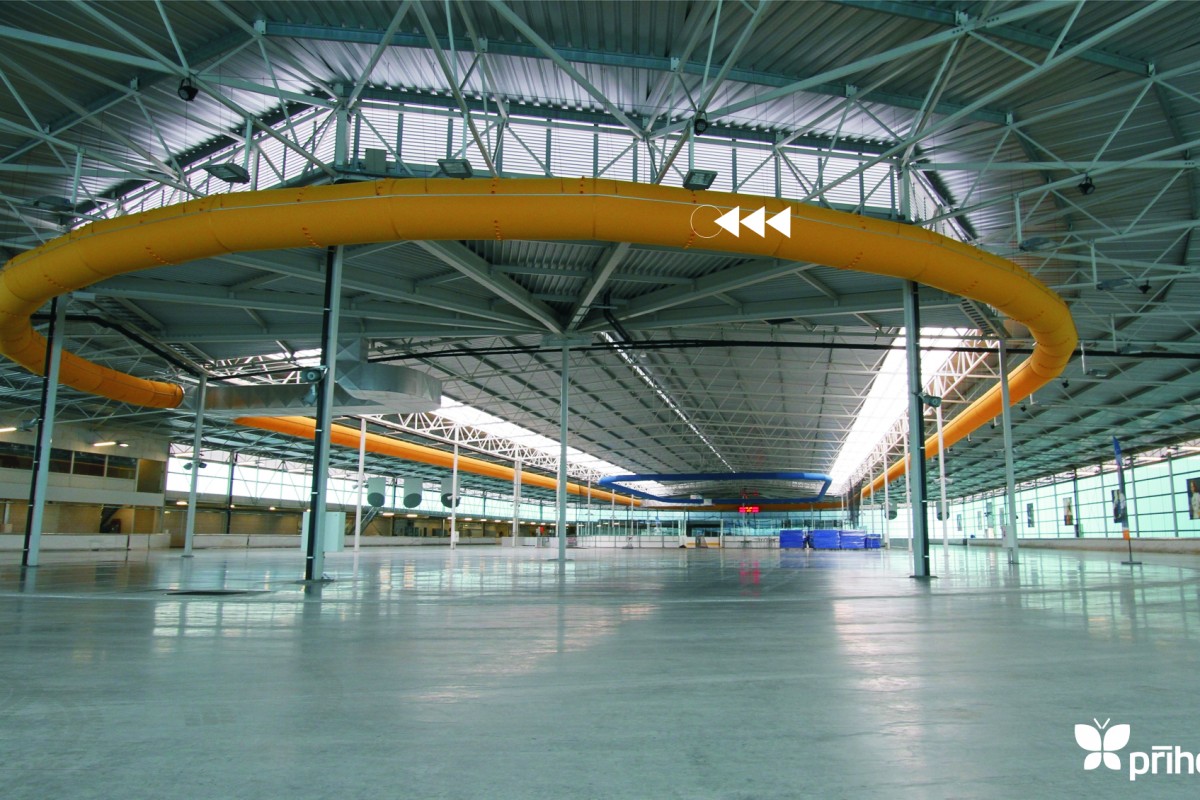
Introduce Air Flow at Gentle Velocities
In terms of design and getting the air down, we employ a mixture of diffuser types to achieve the most appropriate air pattern. To create induction across the middle of a sports hall we’ll use large fabric nozzles to move lots of air and to induce air at high level into the air pattern to encourage movement from below. Along the side of the sports hall we’ll throw the air into the occupied zones at the sides of the courts along the walls – introducing air at gentle velocities where people are usually standing or resting, we never blow the air directly into the court area if badminton is going to be played in the court areas.
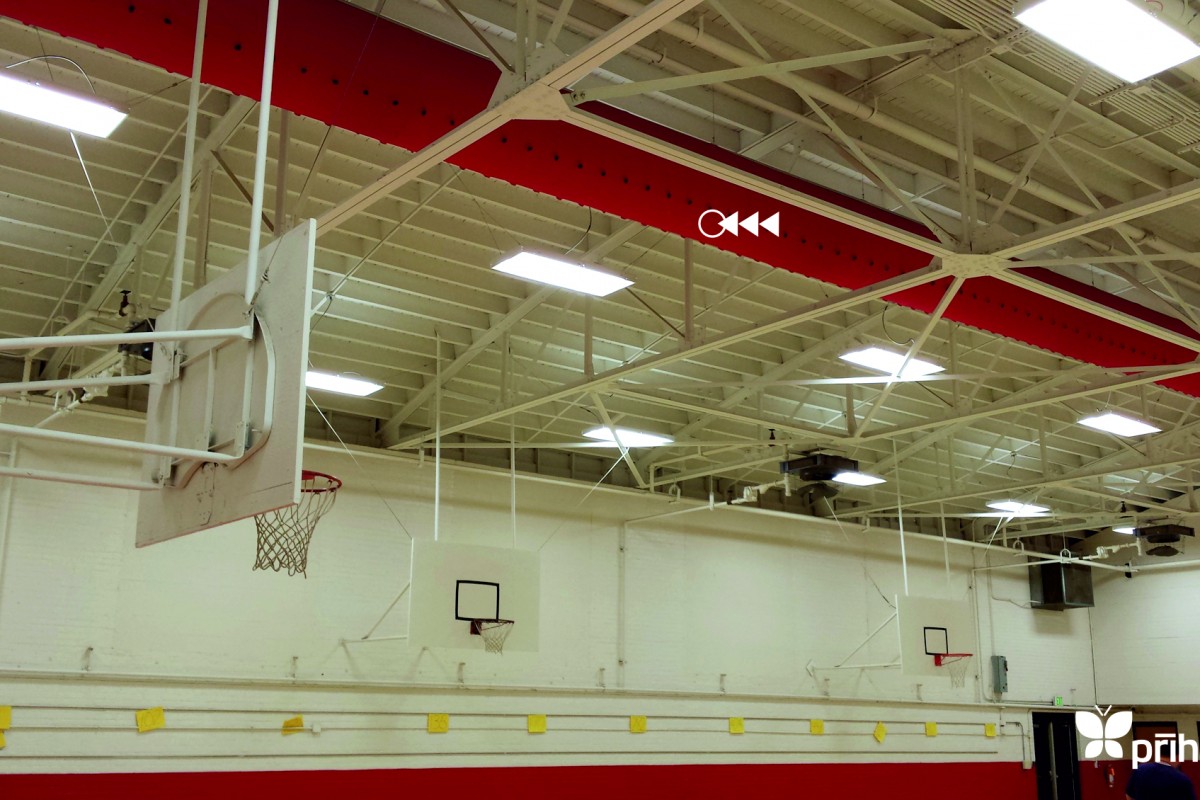
Bespoke Systems For Your Desired Air Pattern
Looking at the supply air ∆t, the distance of travel and the system external static pressure we can model very accurately the travel distance and velocity of the air pattern designed. Looking at this we can then adjust as necessary the size and regularity of nozzles and/or the system pressure or air temperature difference required to achieve air movement within the occupied zone. It’s the graphic velocity and distance modelling that allows us to make bespoke systems with the knowledge that they’ll perform exactly as designed and to pass that information and confidence on to our customers.
